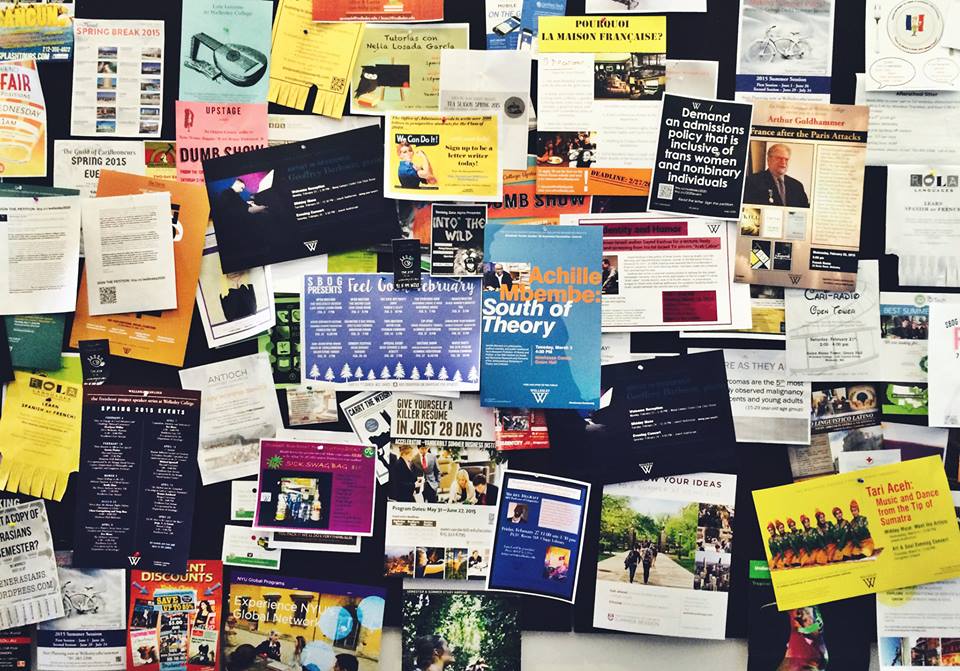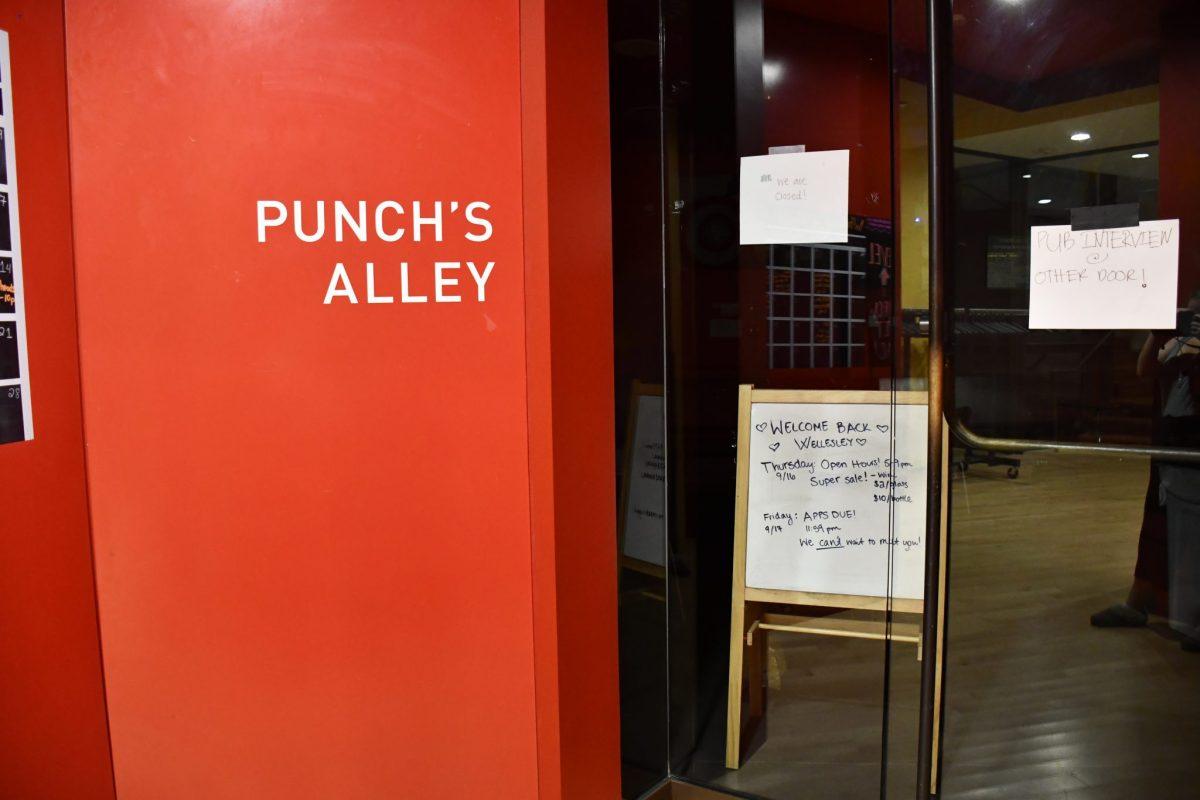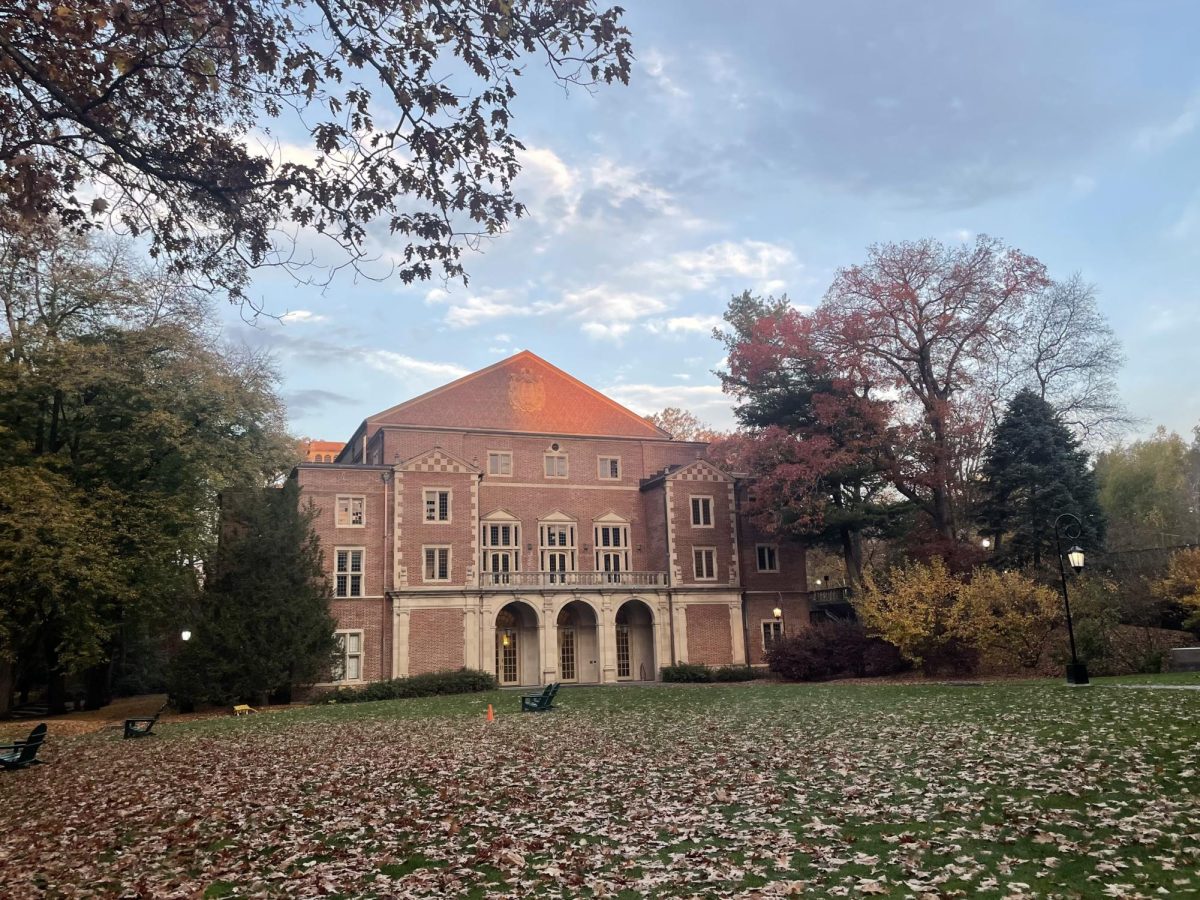Wellesley’s use of Google Apps for Education as well as the increased popularity of social media give organizations multiple platforms to publicize events, fundraise and raise campus awareness about events happening on campus. However, for students, these new platforms of communication also mean an overwhelming onslaught of emails and notifications.
This past week, Senate voted on a new spamming policy for students that was designed by the Senate Policy and Ethics Committee (SPEC). Senate had officially been discussing SPEC’s proposed changes for the past two weeks before approving the new policy. The campus received an email this week from SPEC chair Katelyn Campbell ’17 explaining the revised guidelines.
The new policy includes specific limits for different types of email spamming. This includes a limit of four emails per event to the class conferences and one email per day asking for contributions or applications. The one email limit pertains to organizations such as The Wellesley News and The Wellesley Review, which seek written contributions for publication from the entire student body. Under-door paper spamming is restricted to College Government.
SPEC will mostly rely on student reports of violation of the spam policy. The committee is not asking students to remove posters unless the posters are expired or they have permission from the organization that put the poster up. If SPEC finds that an organization is in violation of any of these new policies, it will first issue a warning. However, if the organization fails to correct the problem within 24 hours, it will receive a $25 fine. SPEC will give the money to the Student Organization Funding Committee (SOFC).
“SPEC will shortly begin working with SOFC to determine the final destination of funds levied from fines. Money from the student activity fee belongs to students, so any and all money levied from fines will be put to use in a way that does the most good for the most students,” Campbell said.
The committee provided recommendations for alternative ways to publicize events and search for lost items. It encourages the use of “non-invasive” social media such as Facebook for publicity to avoid emails piling up in inboxes. There are no specific guidelines that restrict the use of social media.
Many organizations already have a publicity executive board position and the policy also suggests assigning only one person the task of publicizing the event. This position would help the organization track the number of emails sent out in order to avoid any violations.
The main focus of changes made to the spam policy centers around addressing the problem of online communication. Wellesley has had online forums to foster campus-wide discussion since the 1990s, but this is the first time Senate has officially addressed spamming through email groups. This revision has become especially pertinent after the College switched to Google Applications for Education in 2012. Students can now spam through different Google conferences, including entire classes or residence halls. Students have grown accustomed to receiving multiple emails per hour but argue that the volume of emails decreases their effectiveness.
“While the class conferences are a great way to spread information about events happening on campus, they become less effective when they are saturated with multiple emails per organization per day. The new policy’s goal is to help organizations advertise more effectively by encouraging them to use media other than emailing class conferences to distribute information,” Campbell said.
Charlotte Harris ’16, College Government Vice President, expressed support for this policy during the Senate meeting.
“I support it because it just makes everything more clear and explicit about what the expectations are and it’s able to keep people more accountable for spamming, especially since so many people and organizations have expressed over-spamming. It’s just more annoying than helpful,” Harris said.
The new policy came into effect as College Government campaigning reached its peak during the past week. Harris is running for next year’s College Government President and explained that this new policy did not change her tactics for her campaign.
“I didn’t really want to be over aggressive with [spam] because it can get really annoying,” Harris said about her campaign for Vice President last year. “People see a lot of spam. I don’t think it is the most important part of the campaign. Running this year I feel the same way, especially because I’ve gotten feedback throughout the whole year that students are feeling overwhelmed with spam.”
Many candidates for College Government positions have made Facebook pages to gain support and answer students’ questions. The new policy does not limit this type of publicity for candidates because it falls under the “non-invasive” category.
The College Government election committee has also controlled the process of how the candidates reach out to organizations, which helps reduce the number of emails that students receive. Rather than sending out emails to all of the class conferences, College Government candidates can target specific organizations and groups of students.
Sarah Barden ’18 agreed that the sheer number of emails could lead to students missing important emails. She uses email folders to filter incoming emails.
“I actually do check it pretty often because I want to see what’s going on, but they don’t go into my inbox. I never delete anything either,” Barden said. “Even when I go through the folder it’s still a lot of things to go through and I think [the new policy] will help limit the number of emails.”
Some students change the settings on the class groups to “abridged emails,” which gives a summary of the emails sent through this group once a day. Others choose “digest email,” which bundles a certain amount of emails and sends them as one email to the inbox.
Barden is also the Publicity Chair on the executive board of Wellesley Engineering. She makes use of Facebook, Twitter and Gmail to publicize the organization’s events and admitted to emailing spam more than the new limit of four times per event.
“Intuitively it seems like if there is less spam, less people will come. But maybe if there is less spam overall, it will be easier to see all of the emails,” Barden said.
Photo by Rachel Dodell ’18, Online Editor






